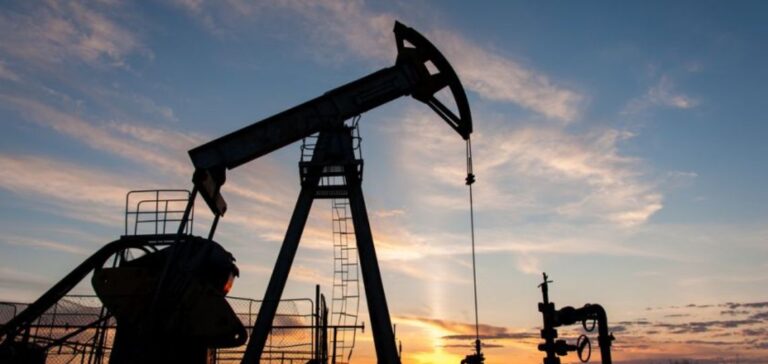An unprecedented tool in the array of sanctions imposed on Russia after the invasion of Ukraine, the cap on the price of Russian crude oil has helped to moderate Moscow’s oil revenues, but is now entering its true test phase as prices climb above the threshold.
Capping Russian oil prices: a strategy to reduce Moscow’s revenues
“Russia’s (oil) revenues are almost 50% lower than they were a year ago,” recalled a senior US administration official on Tuesday during a press briefing at the country’s embassy in London. To measure the success of this policy, we need to look at whether or not “Russia’s overall revenues suffer compared with an unrestricted market”, he added.
The mechanism, adopted by the G7 in December 2022, limits oil deliveries to $60/barrel. Companies from the EU, G7 and Australia cannot provide shipping services for Russian oil above this threshold. The aim is to restrict Russian oil revenues without taking oil off the market, in order to avoid a price surge.
“The G7 price cap accomplished what it was designed to do: limit Russia’s revenues while keeping oil on the market,” Matthew Holland, analyst at Energy Aspects, summed up for AFP.
Stable Russian exports and rebate offers: encouraging results from capping
Since the cap was introduced, “Russian export volumes have been surprisingly stable”, agrees DNB analyst Helge André Martinsen.
And to encourage buyers not to turn away from Russian crude, Moscow was “offering long-term oil delivery contracts at considerable discounts, on the order of 30% below the Brent price, to buyers in Southeast Asia and India, just in anticipation of the price ceiling being breached”, added the senior US official.
On the price side, since December, North Sea Brent crude, the benchmark for black gold in Europe, has remained below $90 a barrel, while its American equivalent, WTI, has not exceeded $85 a barrel.
The test of breaching the $60 threshold
Ural, a Russian oil variety, has traded mostly under $60/barrel in eight months. However, growing market tensions and voluntary cuts by producer countries, including Russia, have pushed prices up. In mid-July, the Russian variety topped $60, according to the financial press and Argus Media data.
For Stephen Innes, analyst at SPI AM, the Russian production cut is “in retaliation against the West”, as Moscow suspects that “it will push up oil prices” during the summer months, when demand for fuel in the USA is high, and China is filling all its refineries to capacity.
“This could be the first real test of the price cap,” says Helge André Martinsen.
Side-effects: reduced buyer interest and constraints for Russia
For Mr. Holland, exceeding the ceiling should above all “reduce the interest of certain buyers” such as India, because of the risks associated with sanctions.
Moreover, the cap also forces Russia to build up its own fleet of tankers to transport its oil, another way of putting a strain on Moscow’s finances by forcing it to “invest considerably”, says the senior US administration official.
However, he gave no figures for oil flows outside G7 control. He mentioned a very “opaque” market.
For Han Tan, analyst at Exinity, “the true objectives of this price cap, as desired by the West, will only be realized if Russia’s war efforts are significantly reduced”.






















